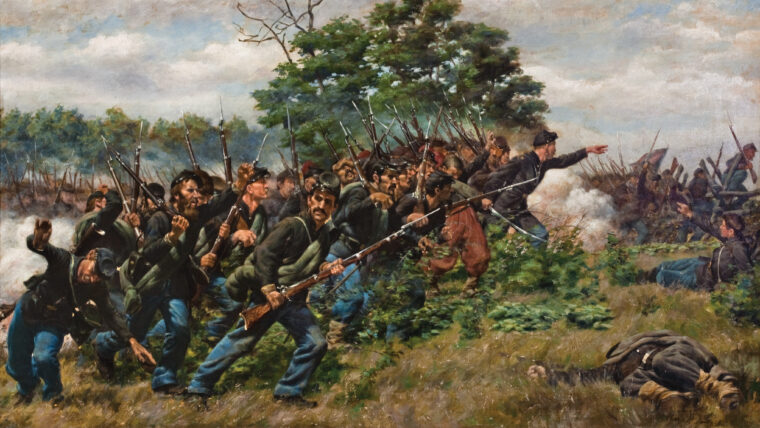
general george mcclellan
Stalemate at Seven Pines
By David NorrisOn the last day of May 1862, heavy gunfire rumbled and thundered in the distance beyond the Confederate capital of Richmond, Virginia. Read more

general george mcclellan
On the last day of May 1862, heavy gunfire rumbled and thundered in the distance beyond the Confederate capital of Richmond, Virginia. Read more
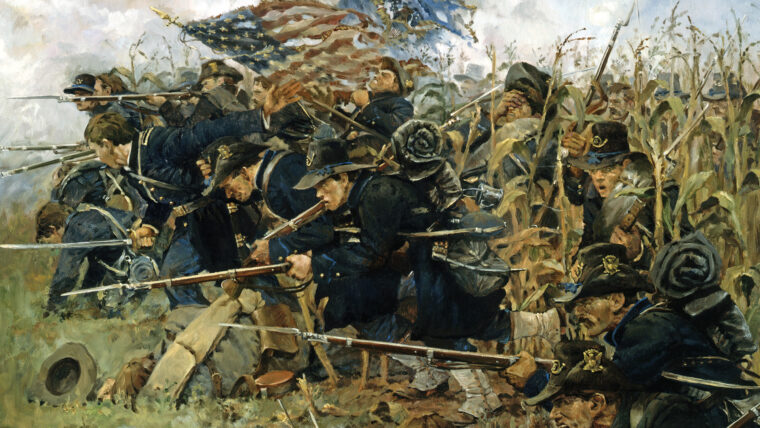
general george mcclellan
The White House was a somber place in the summer of 1862. The Civil War was in the midst of its second costly year, and the Union armies had yet to win a significant victory in the eastern theater. Read more
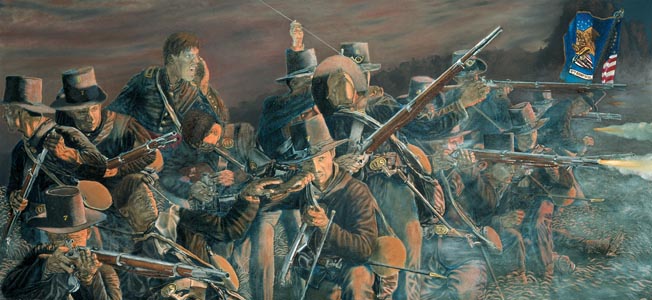
general george mcclellan
The ground around Manassas, Virginia, was not auspicious for Union Army forces in the first two years of the Civil War. Read more
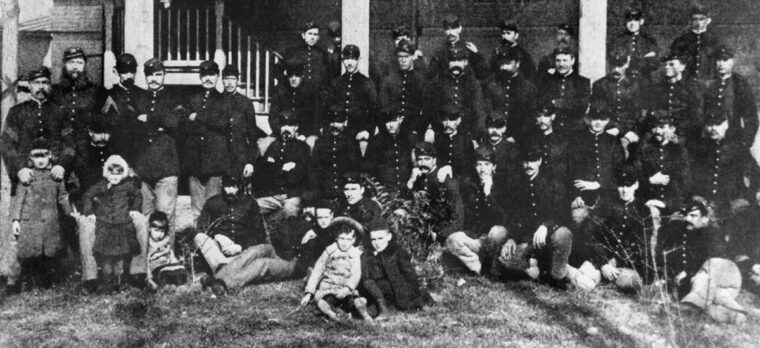
general george mcclellan
On May 15, 1862, a five-ship Union Navy squadron that included the ironclad USS Galena, gunboats Aroostook, Port Royal, Naugatuck, and the famous Monitor neared a bend in the James River known as Drewry’s Bluff, where Confederate Fort Darling commanded the passage. Read more
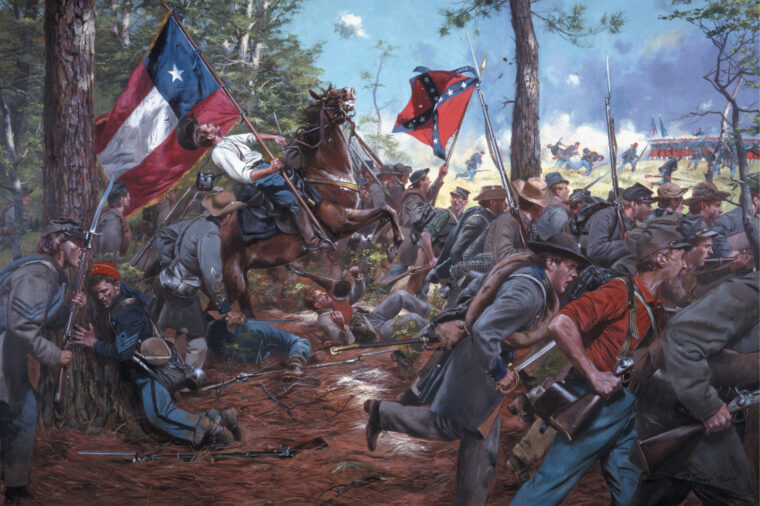
general george mcclellan
Sent into north-central Virginia to threaten Richmond on a second front, McDowell had managed to get lost in the woods near Gainesville and lost touch with his command for 12 full hours. Read more
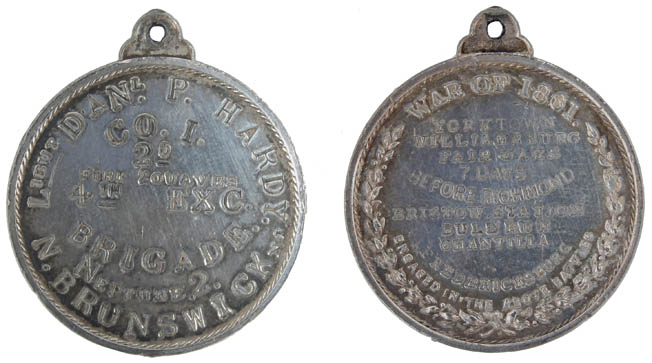
general george mcclellan
The American Civil War may well have been the first major conflict in which soldiers felt the need to wear some sort of a personal identification badge in the event that they were killed or wounded in battle. Read more
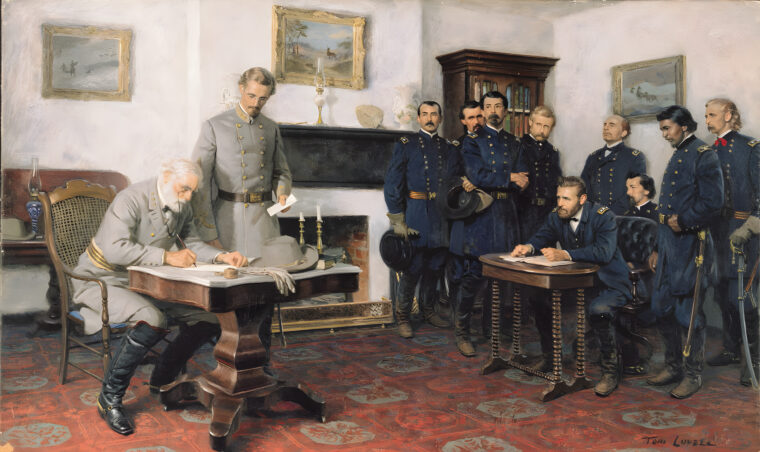
general george mcclellan
Horace Porter was born April 15, 1837 in Huntingdon, Pa. He traced his ancestry and family motto, “Vigilantia et virtute,” to William De La Grange, who accompanied William the Conqueror to England in 1066. Read more
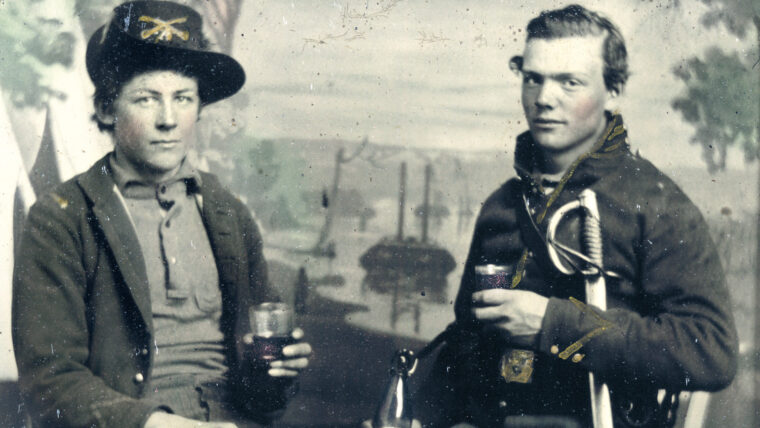
general george mcclellan
Union General Benjamin Butler was baffled. Every night a picket guard went to an outpost 1½ miles from Fort Monroe, Virginia. Read more
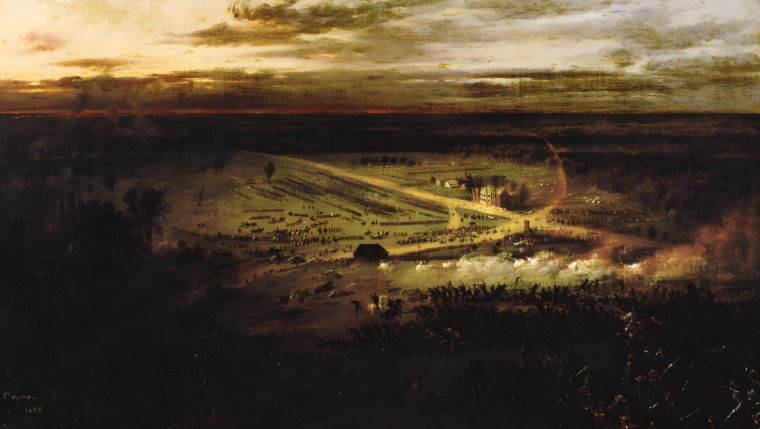
general george mcclellan
The city of New York provided more regiments than did many states during the Civil War, and the deeds of several of its regiments, such as the 9th New York “Hawkins’s Zouaves,” 39th New York “Garibaldi Guard,” and 42nd New York “Tammany Regiment” are well known. Read more
general george mcclellan
Spying is a dangerous game.
Even the best spies sometimes get caught, as Confederate raider John Yates Beall, “the Mosby of the Chesapeake,” learned the hard way in 1865, and the consequences are never pretty to contemplate. Read more
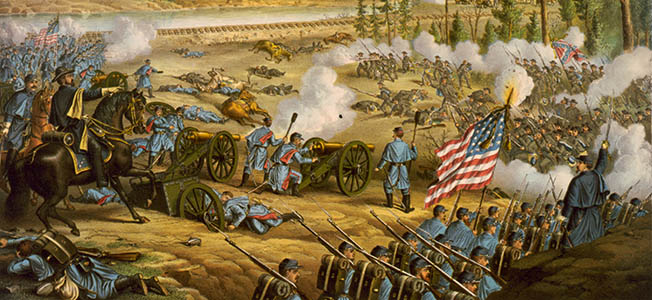
general george mcclellan
Confederate offensives into two border states, Maryland and Kentucky, formed the key highlights of the second half of 1862 for the Confederacy. Read more
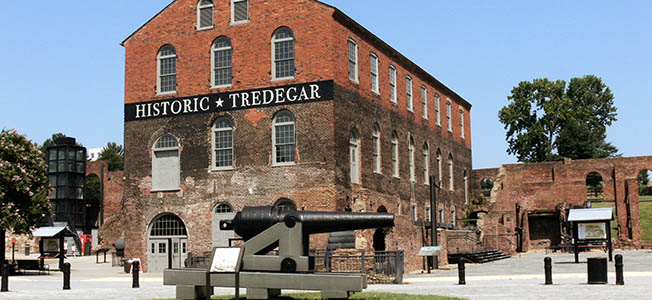
general george mcclellan
Dawn on July 1, 1862, ushered in a hot summer day. After having assumed the offensive five days earlier, General Robert E. Read more
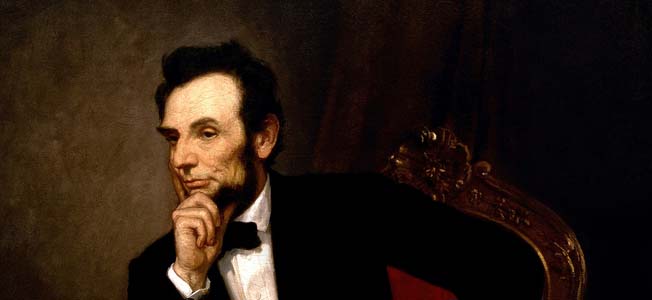
general george mcclellan
The 16th President of the United States, Abraham Lincoln was elected to the highest office in the land in November 1860, and the event prompted the secession of numerous southern states beginning with South Carolina the following month. Read more
general george mcclellan
General George McClellan was a key figure in the prosecution of the American Civil War, particularly during 1862, when he led the Union Army of the Potomac during the Peninsula Campaign, a failed offensive to capture the Confederate capital of Richmond in the spring, and the Battle of Antietam, the bloodiest single day in American history, on September 17, 1862. Read more
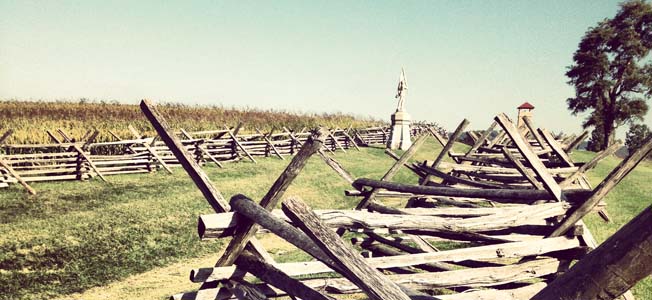
general george mcclellan
The harvest of death in the farm fields of western Maryland was a heavy one on September 17, 1862. Read more